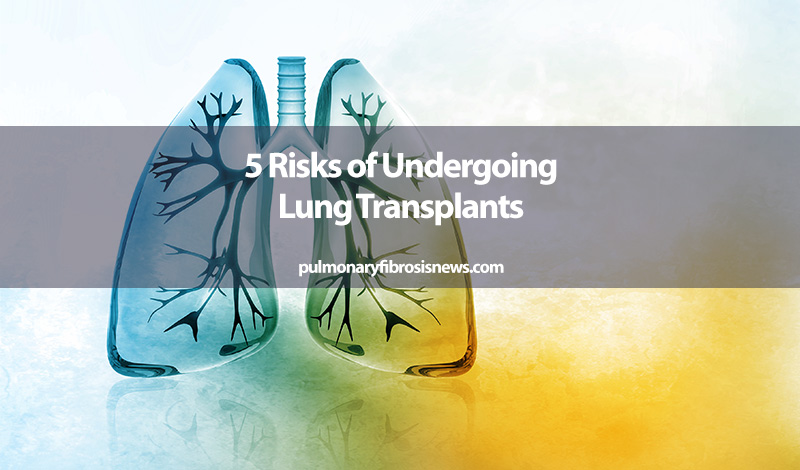5 Risks of Undergoing Lung Transplants
Written by |

Having a lung transplant may be an overwhelming experience. Your pulmonary fibrosis care team is there to help you every step of the way, but it is your body that will undergo the actual procedure. It’s of the utmost importance to have an open, honest talk with your team and family about the expectations of a lung transplant. There are risks associated with every surgical procedure, just as there are benefits to counteract them. If the surgery is successful, you’ll live a healthy life with lungs that are not affected by pulmonary fibrosis. There are patients that go through life without complications following lung transplantation, but the majority will experience some complications. Here you’ll find out five risks regarding lung transplants, where patients may endure one or more of the following complications:
1. Rejection of the lung(s), which can occur anytime, notably within the first 6 weeks, or progressively over time.
Your immune system’s job is to filter what is supposed to be in your body, with what’s not. After the transplant, your immune system is confused and might recognise your new lung(s) as an “intruder” of sorts. This is called rejection, and can make your lungs deteriorate. It usually happens during the first few months following the procedure, but it actually can happen anytime, gradually. This is why you’ll likely be taking immunosuppressants, which is explained in more detail below, due to…
2. Increased chance of infections, related to anti-rejection medicines:
After surgery, you’ll be taking medications to cope with the risk of rejection of the lungs. These are called immunosuppressants, and they work by weakening (suppressing) your immune system so that it doesn’t “fight” the new lungs as much. However, since the medications weaken the entire immune system, it will become weaker when it comes to fighting off other bacterias and viruses, causing infections. It can also cause damage to your kidneys, liver, or other organs.
3. Future risk of certain cancers:
Your immune system works constantly to destroy or neutralize intruders in your body. When on immunosuppressive drugs, bad cells, such as bacteria or cancer cells can multiply more easily. This increases your risks of developing cancer, since following a transplant you’ll have to take immunosuppressants for the rest of your life.
4. Problems in your airways:
Sometimes lesions occur where your airways were surgically connected to the airways of the donor’s lungs. There may not be enough blood flow and you might feel shortness of breath and irritations. This occasionally happens and heals itself over time, but if the problem is persistent, consult with your medical team.
5. Other Complications:
Following the transplant, you will need to take immunosuppressants for the rest of your life. In addition to this being a risk for cancer cells to develop more quickly, this puts you at a higher risk for developing infections, viruses and other diseases such as diabetes, kidney problems, and osteoporosis.
In conclusion, experts admit that lung transplants are risky procedures and not every transplant is successful. However, it’s also important to keep in mind that many lung transplant patients are not affected by any of these complications and go on to live happy healthy lives.
Learn more about pulmonary fibrosis: https://bit.ly/1VElTQA
Pulmonary Fibrosis News is strictly a news and information website about the disease. It does not provide medical advice, diagnosis or treatment. This content is not intended to be a substitute for professional medical advice, diagnosis, or treatment. Always seek the advice of your physician or other qualified health provider with any questions you may have regarding a medical condition. Never disregard professional medical advice or delay in seeking it because of something you have read on this website.



